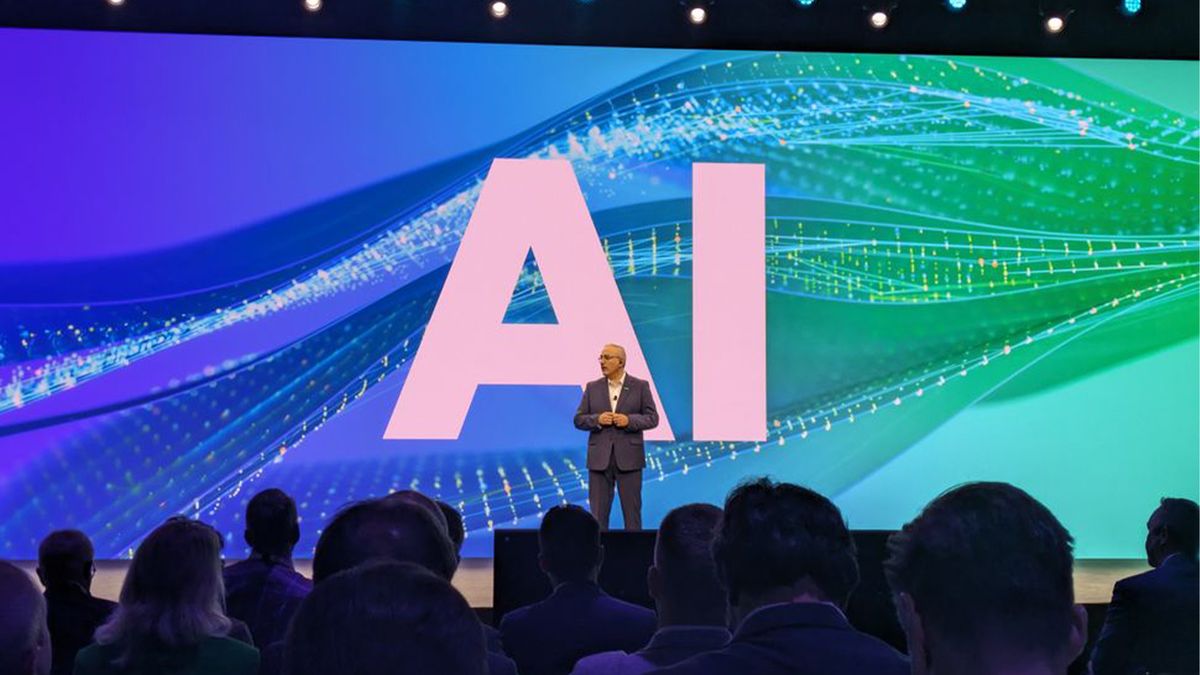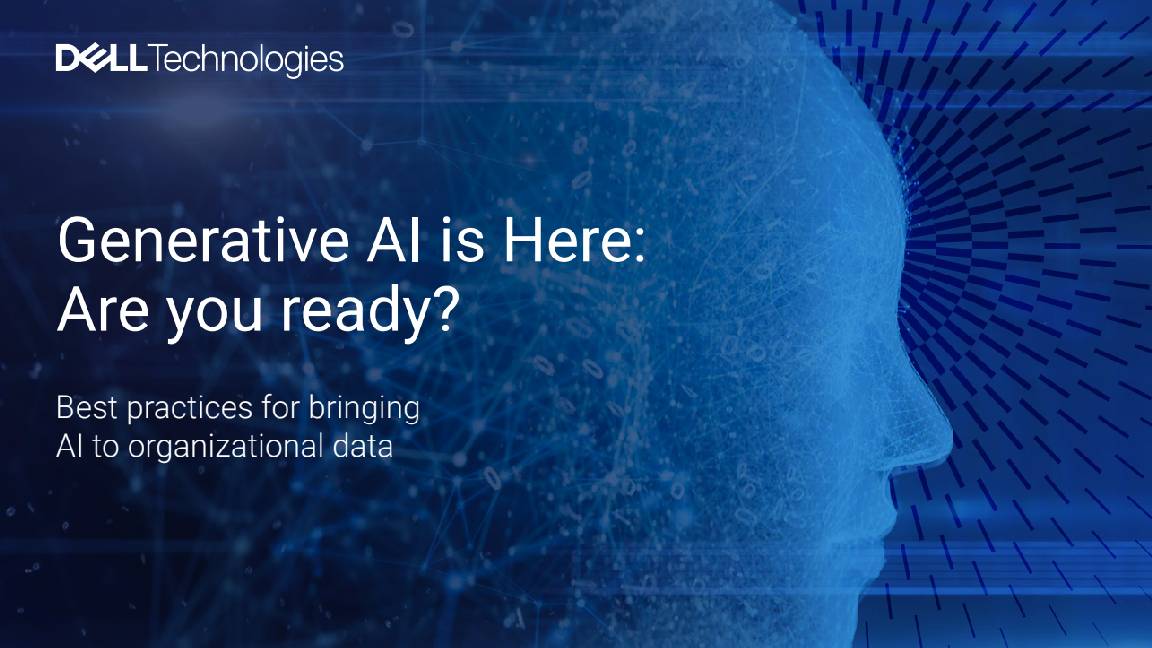Preparing the channel for change in 2024
2024 is expected to be a year of change for the channel, bringing opportunities and challenges for partners as business priorities evolve to meet burgeoning interest in generative AI technologies


As expected from the get-go, 2024 is shaping up to be an exciting year for the channel. It’s clear to see that business priorities are continuing to change rapidly and the proliferation of, and investment in, new technologies such as artificial intelligence (AI) have become established focal points for business growth. Many organizations appear to be identifying or implementing some form of AI to improve their operations and help them succeed in delivering exceptional experiences to their customers.
With this period of change come great opportunities for channel partners, but also challenges. It’s likely trends will continue to evolve throughout the year as organizations in the industry look to tap into new ideas, tools and solutions to future proof their business and disruptive technology like AI continues to develop.
Specializing parts of the business or specific teams for key verticals such as retail, healthcare, and education is likely a key consideration for partners in 2024. Many partners are focusing on specific verticals that are showing an increased demand for service upgrades. This tactic is already proving successful in many cases.

For example, as the healthcare industry looks to transform its networks and its services become increasingly digital, partners will focus their efforts on providing intelligent, AI-native solutions that have the capabilities to offer high performance networking and location-services that aid today’s smart healthcare systems.
Similarly in the education space, more customers are adopting AI capabilities and location services to enhance their user experience. Universities are utilizing AI network capabilities to deliver a more digital and connected experience across campus. These services can be used to improve facilities management enabling, for example, power-saving features which only use services such as lighting or heating when a building is in use. Moreover, the solutions can improve student welfare services, flagging when a student’s activity may be a cause for concern. This guarantees better experiences for students and improved operations for universities.
Partners that want to evolve toward this model should look to reputable vendors to support them on their journey, selecting the right solutions portfolio and working in close collaboration with the right support, training and tools to identify opportunities in key verticals. This ensures that innovative technologies such as AI are implemented in a bold, but controlled way.
Partners to adopt and sell more AI/LLM tools
Partners will also look to adopt more AI-led solutions as generative AI and large language models (LLMs) continue to evolve. Indeed, recent research shows two thirds (66%) of organizations will come under pressure in 2024 to implement AI technologies to ensure they remain competitive. Therefore, channel partners must ensure that they are offering tailored solutions to fit the needs of businesses.
ChannelPro Newsletter
Stay up to date with the latest Channel industry news and analysis with our twice-weekly newsletter

These tools will be used by enterprises to create more intelligent and responsive IT networks. For example, instead of having to call a helpdesk to troubleshoot a problem, individual users will be able to simply ask the network why their Zoom session is not working, and it will be able to automatically diagnose and fix the problem. LLMs will also be used to develop even more proactive and predictive IT maintenance tools, which can help prevent problems from happening in the first place.
For 2024, enterprises will see and utilize even more real-life examples of AI. Many enterprises and their channel partners will see the benefit of adopting AI-driven assistants powered by LLMs to assist network operations as well as helping users to troubleshoot network problems.
This is a big opportunity for partners in 2024 and one they should research and adopt for their sales strategies to ensure further profitability and growth as the industry sees tangible use cases for AI and LLM technologies.
Channel to support rapid change
RELATED WHITEPAPER

The channel ecosystem model is increasingly adopted by many vendors, partners and resellers as it drives a better, more unified experience for the customer. The power of the ecosystem shifts the somewhat siloed structure of traditional relationships and enables multiple partners to have a shared objective in supporting a customers’ needs, they can share their knowledge and deliver increasingly innovative solutions to reach the best outcome. If a partner is focused on a niche area, collaboration allows them to increase their market reach and expand their influence into other areas.
For the end user, collaboration through ecosystems leads to improved product offerings and improved services as vendors look to find the most efficient way to reach end goals using their shared expertise. By working together, partners can offer more comprehensive solutions beyond their specific target market which appeals to a wider set of customers.
Data center autonomy through partners
Many organizations have realized that public cloud is not always as simple and cheap as first thought. Cloud regret is the new story with countless anecdotes of companies repatriating workloads back to private, on-premise data centers.

Now we are seeing these same decisions with respect to plans for new AI data center infrastructure. But this time, companies will be smarter and more thoughtful. Building out a new GPU cluster is expensive, but so is renting that capacity from a hyperscaler. Many companies will opt to build on-premise AI data centers for better control, tighter security, and lower costs than public cloud alternatives.
Partners are noticing this shift in customers’ decision-making too and there is a huge opportunity for partners to support their customers in this transformation if they have the right expertise and solutions to aid them on their journey.
The benefit to customers to building on-premise AI data centers is that they will achieve better control, tighter security and lower costs than public cloud alternatives. Of course, the partners that harness this opportunity will reap the benefits of diversifying their services into the data center space and increase their sales opportunities.

Dale is channel director for EMEA at Juniper Networks. He is responsible for Juniper’s channel strategy across Europe, the Middle East, and Africa, driving engagement to create opportunities and scale. He is passionate about being creative in planning and executing a differentiated go-to-market strategy – one that partners buy into and feel will make a difference. Dale has 20 years of experience in technology, starting his career in the partner community. He then moved to value-added distribution where he built upon his excellent skills in strategy, leadership and building partnerships.
-
 What to look out for at RSAC Conference 2025
What to look out for at RSAC Conference 2025Analysis Convincing attendees that AI can revolutionize security will be the first point of order at next week’s RSA Conference – but traditional threats will be a constant undercurrent
By Rory Bathgate
-
 Ransomware attacks are rising — but quiet payouts could mean there's more than actually reported
Ransomware attacks are rising — but quiet payouts could mean there's more than actually reportedNews Ransomware attacks continue to climb, but they may be even higher than official figures show as companies choose to quietly pay to make such incidents go away.
By Nicole Kobie
-
 AI-first partnerships: Unlocking scalable growth for business
AI-first partnerships: Unlocking scalable growth for businessIndustry Insights Channel partners play a vital role in facilitating AI adoption, but there's more to offering support than simple integration
By Neil Sawyer
-
 The channel's opportunity to accelerate generative AI adoption
The channel's opportunity to accelerate generative AI adoptionIndustry Insights Generative AI has found its feet as a transformational technology that cuts across every industry, and the channel has a special role to play in boosting adoption
By Sahil Rekhi
-
 How AI is transforming businesses in the tech channel
How AI is transforming businesses in the tech channelIndustry Insights AI is shaping the way organizations operate within the channel, but what can IT vendors and professionals do to maximize the value the technology can bring?
By Ryan Martin
-
 The crucial role the channel plays as AI transforms the contact center industry
The crucial role the channel plays as AI transforms the contact center industryIndustry Insights Channel partners can capitalize on the recent generative AI ‘boom’ to maximize impact - but there are key considerations at play
By Keith Jackson